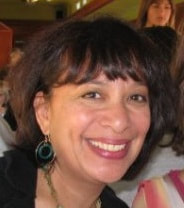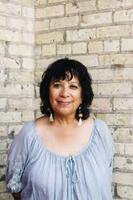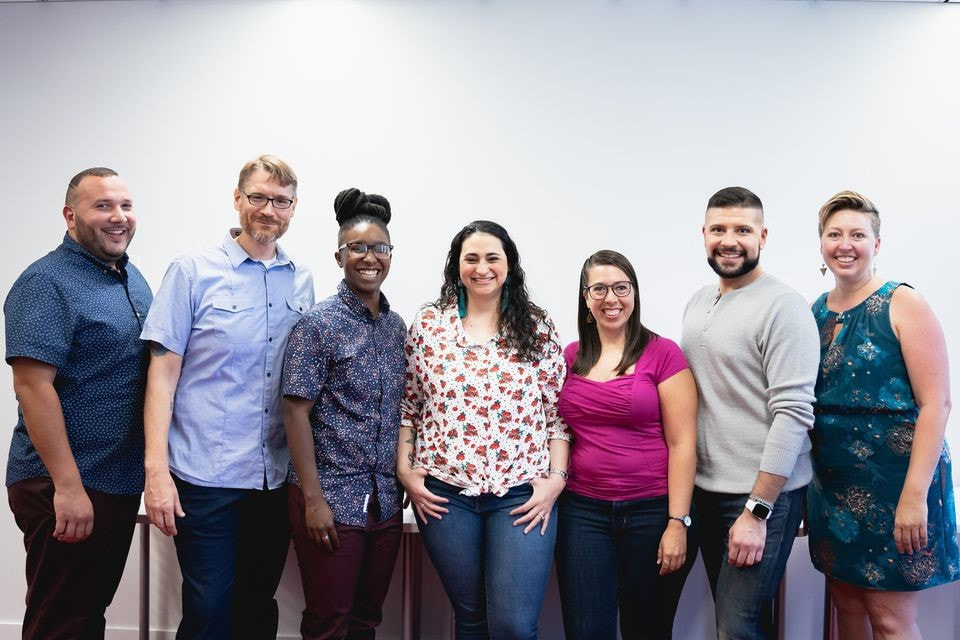 Lia Rivamonte, Artist in Residence Team Recently, I listened to a panel discussion of self-identified queer and trans Latinx artists on the topic of anti-blackness in the Latinx community. Black Lives Matter has forced conscientious individuals and communities from every background to look into the mirror — eyes wide open — and take stock of the anti-black bias in our own histories, cultures, and traditions. The painful truth is that none of us gets a free pass; one of the burdens wrought by the legacy of colonization is the lingering hatred of our own dark skin color, a perverse yearning for whiteness. That this exchange of truth telling was instigated by theater artists was no surprise to me. Theater-makers, actors in particular, have long been subjected to a narrow idea of what constitutes physical attractiveness or suitability in terms of skin color, race, and ethnicity. Their conversation ran the gamut from how they view their intersectionality regarding their work in theater, to what they have lost and/or gained in owning their identities as Latinx or Black or both, to their renewed hope for a more Fall Brings Two New Artists In Residence to Unity Church Lia Rivamonte, Artist in Residence Team equitable, inclusive theater world where they would not be penalized for being Black, queer, trans, Latinx or all of the above. Where their stories would be told truthfully, and where their work would not be judged solely by historically white definitions of excellence. It struck me that these exchanges are important, and that having artists around to activate them is just what we hunger for at Unity Church. Now, I know there are plenty of us who prefer nonfiction to fiction, a scientific paper to a poem, or a documentary to a scripted movie. No matter. Each of these modalities trade in truth, and all are driven by a powerful sense of curiosity and the imagination. Imagination is the key to the multicultural beloved community we profess to want to live in. Imagination is what allows us to envision a more generous, kind, safe, viable, and loving existence. Imagination is the language of art. With the Artist in Residence program at Unity Church, we have an opportunity to grow as individuals and as a community, and to become more articulate in the language of imagination. We are thrilled to have had the pleasure and privilege of hearing Rebekah Crisanta de Ybarra’s singular blend of Latin American Nueva Cancion and American Blues, and to learn about the making and meaning of the Dia de los Muertos ofrenda. We were fortunate to be able to immerse ourselves in Andean folk culture, and the rich harmonies of the mother and son duo, Ina Yukka. We were transported by their intricate knowledge and understanding of Andean-rooted music, instruments, and dance, and a concert that got us up out of our early pandemic couches to sway to the tuneful rhythms. This fall the Artist in Residence Team is ecstatic to introduce two new artists to the Unity community: Donte Collins (www.dontecollins.com) is an awardwinning poet, and spoken word artist who “…uses language and their body (the marriage between the archive and the repertoire) to reimagine how poetry can offer necessary rupture and refrain.” Their first book of poems, “Autopsy,” was a finalist for a Minnesota Book Award. Marcus Young (https://youtu. be/xbY80eFOBIM) is a behavioral and social practice artist making work for the concert stage, museums, and the public realm. As City Artist in St. Paul from 2006 to 2015, Marcus created the ongoing public works project Everyday Poems for City Sidewalk. In 2008, he established Don’t You Feel It Too? a participatory street dance project that continues to serve as a means of selfliberation and of protest. Both artists are excited to explore the possibilities offered in their creative work with the Unity Church community. Especially in this time of social distancing, our emotional and spiritual selves require close tending. We encourage everyone to become acquainted with Donte and Marcus and learn about their work, what they choose to focus on in their work, and why. Witness how an idea is transformed into something wholly unexpected, something truthful that stretches the imagination. Experience your own growth by participating in these artists’ work at Unity Church. The Artist in Residence program promises to help us strengthen our connection to our deeper selves, to one another, and to the larger world. Please watch for forthcoming information and program details. The Artist in Residence Team includes Ahmed Anzaldúa, KP Hong, Lia Rivamonte, Amanda Rueter, and Maura Williams.
0 Comments
Shelley Butler, Beloved Community Communications Team
Register for Part 2 • Wednesday September 22: Conflict Following up on a half-day workshop last fall, Team Dynamics is back with a seven-part series as one of our next right actions at Unity Church to realize our goals, ends, dreams of creating an anti-racist, multicultural community and to individually increase our competence and awareness. You don’t need to attend all sessions, but you need to attend either Part 1 or Part 2 to attend any sessions in the rest of the series. So, if you were not able to attend on September 15, please register for September 22, Part 2. Attending Part 1 was a rich and instructive experience. Pauline Eichten described some of the many important messages from Team Dynamics trainers Alfonso, Mark, and Sarah: We carry our culture and our identities with us. They function as a filter, a lens for how we see the world and how we regulate or police what we see. How we react to something says something about ourselves and our assumptions and expectations. What is the culture and the identities that I carry and how do they shape my responses? Some of those identities are outdated, but they still operate and can catch me unawares. In wrapping up the session, we were told that the moral of the story is to start with “rigorous and sacred self-awareness” of our own lens, which includes actively looking for those influences that affect our unconscious and impact how we react and make decisions. Much more to come in the next six sessions. Remember that you must attend either Part 1 or Part 2 to be able to attend following sessions. Information about each session and links to sign up are online.  Lia Rivamonte on behalf of the Beloved Community Communications Team In a recent peace circle conducted via Zoom about how we might transform policing, it struck me how difficult it is to communicate from one screen to another. Not being able to read people’s faces or body language, it’s hard to gauge how others in the group are feeling because awkwardness is built into the platform. It was helpful, of course, to have such skilled facilitators as Karen Hering and Maura Williams, who are experienced in soliciting responses in large group settings. What follows are some of the thoughts I have about my digital peace circle experience. They reflect some of my first impressions only—with the emphasis on my.
We were all asked, “What makes us feel safe?” It is the question at the heart of the change we seek. It is a basic need as human beings to feel protected, to trust that those around us care about our safety and well-being. That those of us who have willingly taken on the responsibility for keeping the larger community from harm must not predetermine who among us is worth protecting, while automatically ascribing criminality to whole groups or individuals based on the color of their skin. And while it may be simplistic to attribute the reflexive violence that members of our police force employ to answer our calls for help, it does seem that no other alternatives are considered. Especially when they show up armed. Have we given too much power to an institution that can too easily be corrupted? Probably. But an institution is comprised of individuals who also share our vulnerability as human beings. How do we make sure we all feel safe? Admittedly, the evening session was not what I had anticipated — I was expecting to hear and possibly to contribute some “solutions” about how we might transform policing in our community. However, when speaking to a friend about the evening, I realized that it was just the beginning we need. |
Topics
All
Beloved Community ResourcesUnity Justice Database
Team Dynamics House of Intersectionality Anti-Racism Resources in the Unity Libraries Collection Creative Writers of Color in Unity Libraries The History of Race Relations and Unity Church, 1850-2005 Archives
July 2024
Beloved Community Staff TeamThe Beloved Community Staff Team (BCST) strengthens and coordinates Unity’s antiracism and multicultural work, and provides opportunities for congregants and the church to grow into greater intercultural competency. We help the congregation ground itself in the understanding of antiracism and multiculturalism as a core part of faith formation. We support Unity’s efforts to expand our collective capacity to imagine and build the Beloved Community. Here, we share the stories of this journey — the struggles, the questions, and the collaborations — both at Unity and in the wider world.
The current members of the Beloved Community Staff Team include Rev. Kathleen Rolenz, Rev. KP Hong, Rev. Lara Cowtan, Drew Danielson, Laura Park, Lia Rivamonte and Angela Wilcox. |
